Programme
Antonín Dvořák
Violin Concerto in A minor, Op. 53
Leoš Janáček
Glagolitic Mass, cantata for vocal soloists, choir, orchestra and organ to an Old Church Slavonic text
Secure your seat for the 2025/2026 season – presales are open.
Choose SubscriptionThe Glagolitic Mass is one of the most powerful spiritual compositions in the history of music. Janáček was 72 when he set an Old Church Slavonic text to music whilst staying in the spa town Luhačovice. Under the baton of Semyon Bychkov, the Czech Philharmonic will perform it in another spa town: Karlovy Vary.
Antonín Dvořák
Violin Concerto in A minor, Op. 53
Leoš Janáček
Glagolitic Mass, cantata for vocal soloists, choir, orchestra and organ to an Old Church Slavonic text
Jan Mráček violin
Lyubov Petrova soprano
Lucie Hilscherová mezzo-soprano
Dmytro Popov tenor
David Leigh bass
Daniela Valtová Kosinová organ
Prague Philharmonic Choir
Lukáš Vasilek choirmaster
Semyon Bychkov conductor
Czech Philharmonic

Jan Mráček violin
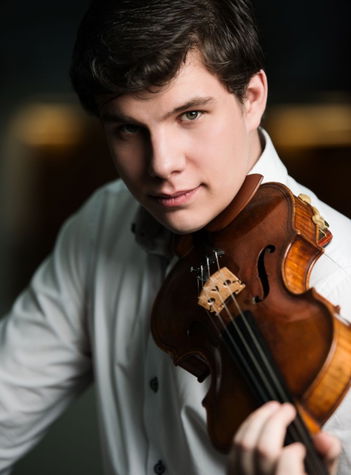
The Czech violinist Jan Mráček was born in 1991 in Pilsen and began studying violin at the age of five with Magdaléna Micková. From 2003 he studied with Jiří Fišer, graduating with honors from the Prague Conservatory in 2013, and until recently at the University of Music and the Performing Arts in Vienna under the guidance of the Vienna Symphony concertmaster Jan Pospíchal.
As a teenager he enjoyed his first major successes, winning numerous competitions, participating in the master classes of Maestro Václav Hudeček – the beginning of a long and fruitful association. He won the Czech National Conservatory Competition in 2008, the Hradec International Competition with the Dvořák concerto and the Janáček Philharmonic Orchestra in 2009, was the youngest Laureate of the Prague Spring International Festival competition in 2010, and in 2011 he became the youngest soloist in the history of the Czech Radio Symphony Orchestra. In 2014 he was awarded first prize at Fritz Kreisler International Violin Competition at the Vienna Konzerthaus. When the victory of Jan Mráček was confirmed, there was thunderous applause from the audience and the jury. The jury president announced, “Jan is a worthy winner. He has fascinated us from the first round. Not only with his technical skills, but also with his charisma on stage.”
Jan Mráček has performed as a soloist with world’s orchestras, including the Royal Philharmonic Orchestra, St. Louis Symphony, Symphony of Florida, Tchaikovsky Symphony Orchestra, Kuopio Symphony Orchestra, Romanian Radio Symphony, Lappeenranta City Orchestra (Finland) as well as the Czech National Symphony Orchestra, Prague Symphony Orchestra (FOK), Janáček Philharmonic Orchestra and almost all Czech regional orchestras.
Jan Mráček had the honor of being invited by Maestro Jiří Bělohlávek to guest lead the Czech Philharmonic Orchestra in their three concert residency at Vienna’s Musikverein, and the European Youth Orchestra under Gianandrea Noseda and Xian Zhang on their 2015 summer tour. He has been a concertmaster of the Czech Philharmonic since 2018.
In 2008 he joined the Lobkowicz Piano Trio, which was awarded first prize and the audience prize at the International Johannes Brahms Competition in Pörtschach, Austria in 2014.
His recording of the Dvořák violin concerto and other works by this Czech composer under James Judd with the Czech National Symphony Orchestra was recently released on the Onyx label and has received excellent reviews.
Jan Mráček plays on a Carlo Fernando Landolfi violin, Milan 1758, generously loaned to him by Mr Peter Biddulph.
Lyubov Petrova soprano
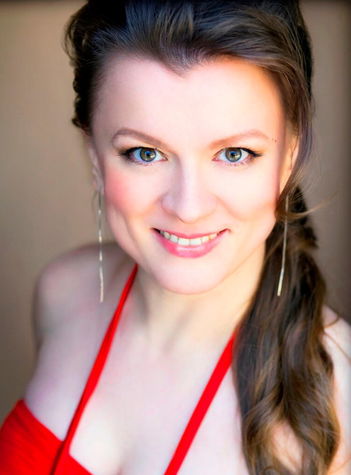
Today a widely acclaimed artist, Lyubov Petrova has a beautiful soprano voice that has taken her nearly everywhere in the world with her “blazing high notes and magnetic stage presence” (Opera News). A graduate of Moscow’s Tchaikovsky Conservatory, she came to the attention of the worldwide musical community thanks to victories at two international competitions: the Rimsky-Korsak Competition (1998) and the Elena Obraztsova Competition (1999).
She has appeared on the theatrical stage in Japan, Korea, Italy, France, and the United Kingdom, but we find her most frequently in the USA, where she lives in New York. At the Metropolitan Opera, one of the world’s most famous opera stages, she has sung many roles of the Classical and Romantic repertoire, ranging from Mozart to Wagner. She has plentifully supplemented her operatic career with concert performances around the world. She has already sung Beethoven’s Ninth Symphony several times, including a performance a few years ago with the Czech conductor Jakub Hrůša and London’s Philharmonia Orchestra. Perhaps today we shall hear her beautiful piano singing the high register, for which music critics have unfailingly showered her with praise.
Lucie Hilscherová mezzo-soprano
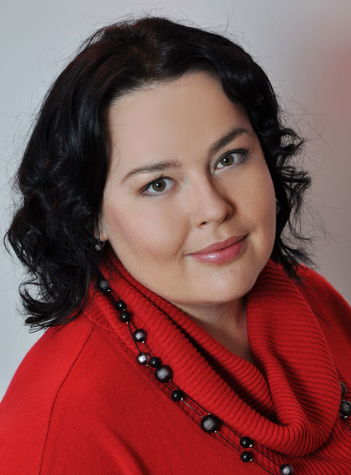
The Czech mezzo-soprano Lucie Hilscherová makes guest appearances at the National Theatre in Prague, the National Moravian-Silesian Theatre in Ostrava, the J. K. Tyl Theatre in Pilsen, the Silesian Theatre in Opava, the State Theatre in Košice, and the Mannheim National Theatre. She has also appeared as Háta in The Bartered Bride in Tokyo (2010, Tokyo Metropolitan Symphony Orchestra, Suntory Hall, conductor Leoš Svárovský) and London (2011, BBC Symphony Orchestra, Barbican Hall, conductor Jiří Bělohlávek).
She is in demand for concert performances of the lieder and oratorio repertoire, and she also enjoys interpreting the works of contemporary composers. She has collaborated with important orchestras and conductors, appearing at such festivals as Musikfest Stuttgart, Beethovenfest Bonn, Grafenegg Musik-Sommer, Prague Spring, the Easter Festival of Sacred Music in Brno, Smetana’s Litomyšl, the St. Wenceslas Music Festival, and the Peter Dvorský International Music Festival in Jaroměřice.
Aleš Briscein tenor
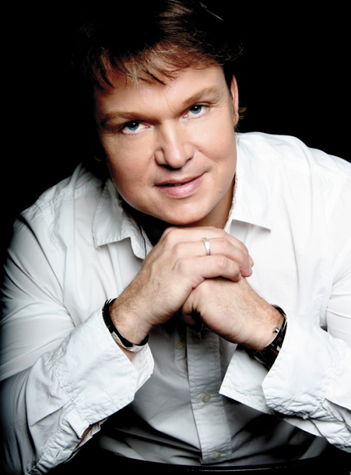
Two-time Thalia Award winner Aleš Briscein is a sought-after guest at Czech and foreign theatres and concert halls. He originally studied clarinet and saxophone, then opera singing at the Prague Conservatoire. Thereafter, he furthered his studies at the University of West Bohemia in Pilsen. He has performed at the prestigious Salzburg, Edinburgh, and Prague Spring festivals, including having sung the main tenor role of part Jonathan in the world premiere of the oratorio Judas Maccabeus by Sylvie Bodorová. For the Decca label, he make a CD recording of Pavel Haas’s opera The Charlatan, and he has sung in Alban Berg’s Wozzeck in Valencia and in Zemlinsky’s opera Der Zwerg with the Odyssey Opera in Boston. His range of repertoire is very broad, and he enjoys devoting himself to early music and sacred works. Although he has appeared in concert collaborating with many important orchestras, his career focuses on opera. He is a regular guest in Prague with the National Theatre and the State Opera, and abroad he works in close cooperation with the Opéra National de Paris. He has also appeared on the stages of the Teatro Real in Madrid, Vienna’s Volksoper, Berlin’s Komische Oper, the Bavarian State Opera, and Oper Graz.
David Leigh bass
For the American bass David Leigh, today’s encounter with the Czech Philharmonic is not a debut either. He and the orchestra already collaborated in the 2023/24 season for a performance of Mahler’s Eighth Symphony on tour in Hamburg. However, the young singer’s chief domain is opera, to which he devotes himself at a world-class level despite his young age. As a member of the prestigious Lindemann Young Artist Development Program, he has appeared on stage regularly at New York’s Metropolitan Opera, and since then he has sung such important roles as Hagen (Der Ring des Nibelungen) in a production at the Zurich Opera House, King Mark (Tristan und Isolde) with the Santa Fe Opera, and Filippo (Don Carlos) with the Dallas Opera.
He benefitted from ideal conditions for musical development. He was born to an artistic family—his father is a respected composer, his mother is an acclaimed painter, and his sister is a noted playwright. Leigh studied composition at Yale University, then voice and opera at the Mannes College and the Yale School of Music, where he also earned the Harriet Gibbs Fox Memorial Prize for the best grades. He has also been awarded prizes by the Metropolitan Opera National Council Auditions, the McCammon Competition held by the Fort Worth Opera, and the Wagner Society of New York.
Daniela Valtová Kosinová organ
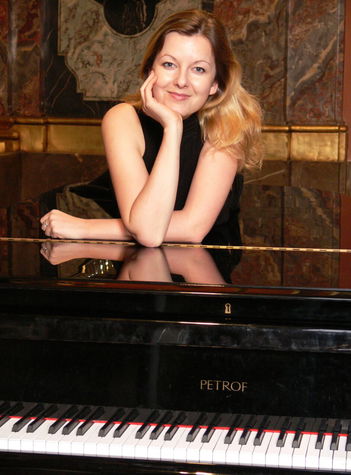
A graduate of Prague’s Academy of Performing Arts and of a year-long study visit at the Hochschule für Musik und Theater in Hamburg, since 2006 Daniela Valtová Kosinová has been the solo organist and principal keyboard player of the Prague Symphony Orchestra. As a soloist, she collaborates with other Czech and foreign orchestras and appears regularly with the Czech Philharmonic, with which she has twice toured the USA. Her first performance with this orchestra of the Glagolitic Mass, to which she “found a path of her own”, took place at Vienna’s Musikverein under the baton of Jiří Bělohlávek, followed by several more performances including one on a floating stage on the Vltava and others on a tour of Europe in 2022.
A winner of third prize and the title of laureate at the Brno International Organ Competition in 2002, she is often invited to such leading music festivals as Beethovenfest Bonn, Prague Spring, Smetana’s Litomyšl, and Janáček May. She is a cofounder of the concert programme Music Between the Words, and she also devotes herself to composing. In 2010 she released a jazz album of her own music titled Meeting Point, and she has appeared at numerous jazz festivals.
Prague Philharmonic Choir
The Prague Philharmonic Choir (PPC), founded in 1935 by the choirmaster Jan Kühn, is the oldest professional mixed choir in the Czech Republic. Their current choirmaster and artistic director is Lukáš Vasilek, and the second choirmaster is Lukáš Kozubík.
The choir has earned the highest acclaim in the oratorio and cantata repertoire, performing with the world’s most famous orchestras. In this country, they collaborate regularly with the Czech Philharmonic and the Prague Philharmonia. They also perform opera as the choir-in-residence of the opera festival in Bregenz, Austria.
Programmes focusing mainly on difficult, lesser-known works of the choral repertoire. For voice students, they are organising the Academy of Choral Singing, and for young children there is a cycle of educational concerts.
The choir has been honoured with the 2018 Classic Prague Award and the 2022 Antonín Dvořák Prize.
Lukáš Vasilek choirmaster
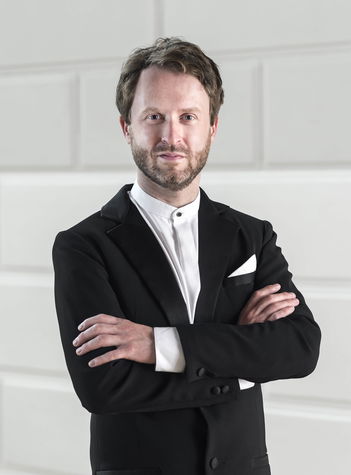
Lukáš Vasilek studied conducting and musicology. Since 2007, he has been the chief choirmaster of the Prague Philharmonic Choir (PPC). Most of his artistic work with the choir consists of rehearsing and performing the a cappella repertoire and preparing the choir to perform in large-scale cantatas, oratorios, and operatic projects, during which he collaborates with world-famous conductors and orchestras (such as the Berlin Philharmonic, the Czech Philharmonic, the Israel Philharmonic, and the Saint Petersburg Philharmonic).
Besides leading the PPC, he also engages in other artistic activities, especially in collaboration with the vocal ensemble Martinů Voices, which he founded in 2010. As a conductor or choirmaster, his name appears on a large number of recordings that the PPC have made for important international labels (Decca Classics, Supraphon); in recent years, he has been devoting himself systematically to the recording of Bohuslav Martinů’s choral music. His recordings have received extraordinary acclaim abroad and have earned honours including awards from the prestigious journals Gramophone, BBC Music Magazine, and Diapason.
Semyon Bychkov conductor
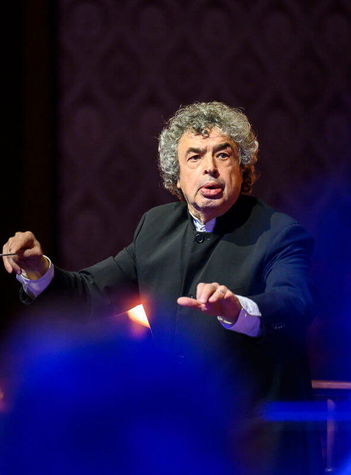
In addition to conducting at Prague’s Rudolfinum, Semyon Bychkov and the Czech Philharmonic in the 2023/2024 season, took the all Dvořák programmes to Korea and across Japan with three concerts at Tokyo’s famed Suntory Hall. In spring, an extensive European tour took the programmes to Spain, Austria, Germany, Belgium, and France and, at the end of year 2024, the Year of Czech Music culminated with three concerts at Carnegie Hall in New York.
Among the significant joint achievements of Semyon Bychkov and the Czech Philharmonic is the release of a 7-CD box set devoted to Tchaikovsky’s symphonic repertoire and a series of international residencies. In 2024, Semjon Byčkov with the Czech Philharmonic concentrated on recording Czech music – a CD was released with Bedřich Smetanaʼs My Homeland and Antonín Dvořákʼs last three symphonies and ouvertures.
Bychkovʼs repertoire spans four centuries. His highly anticipated performances are a unique combination of innate musicality and rigorous Russian pedagogy. In addition to guest engagements with the world’s major orchestras and opera houses, Bychkov holds honorary titles with the BBC Symphony Orchestra – with whom he appears annually at the BBC Proms – and the Royal Academy of Music, who awarded him an Honorary Doctorate in July 2022. Bychkov was named “Conductor of the Year” by the International Opera Awards in 2015 and, by Musical America in 2022.
Bychkov began recording in 1986 and released discs with the Berlin Philharmonic, Bavarian Radio, Royal Concertgebouw, Philharmonia Orchestra and London Philharmonic for Philips. Subsequently a series of benchmark recordings with WDR Symphony Orchestra Cologne featured Brahms, Mahler, Rachmaninov, Shostakovich, Strauss, Verdi, Glanert and Höller. Bychkov’s 1993 recording of Tchaikovsky’s Eugene Onegin with the Orchestre de Paris continues to win awards, most recently the Gramophone Collection 2021; Wagner’s Lohengrin was BBC Music Magazine’s Record of the Year (2010); and Schmidt’s Symphony No. 2 with the Vienna Philharmonic was BBC Music Magazine’s Record of the Month (2018).
Semyon Bychkov has one foot firmly in the culture of the East and the other in the West. Born in St Petersburg in 1952, he studied at the Leningrad Conservatory with the legendary Ilya Musin. Denied his prize of conducting the Leningrad Philharmonic, Bychkov emigrated to the United States in 1975 and, has lived in Europe since the mid-1980’s. In 1989, the same year he was named Music Director of the Orchestre de Paris, Bychkov returned to the former Soviet Union as the St Petersburg Philharmonic’s Principal Guest Conductor. He was appointed Chief Conductor of the WDR Symphony Orchestra (1997) and Chief Conductor of Dresden Semperoper (1998).
Leoš Janáček
Glagolitic Mass, a cantata for soloists, choir, orchestra and organ
Among great creative figures, Leoš Janáček is remarkable in that the older he got, the more “youthful”, original, and modern the music that he wrote became. This was perhaps because he had lost everything. Released by the cruelty of fate from his ties and concerns for his parents and his children, he was truly able to find himself. He cast aside conventions and tried to get to the heart of things.
Janáček’s Glagolitic Mass is one of the most powerful sacred compositions in music history. The 72-year-old composer wrote the music to the text in Old Church Slavonic in 1926 at his favourite spa, Luhačovice. “The rain in Luhačovice is pouring, just pouring. I look out of the window at the gloomy mountain Komoň. The clouds come rolling in, and the wind tears and scatters them. […] The darkness becomes denser and denser. Now I look out into the black of night; lightning slashes into the darkness.” That is how Janáček described the atmosphere that August, when he began writing his Glagolitic Mass. The decision was made quickly. Although he had taken an interest in the Old Church Slavonic text of the Mass a few years beforehand and had made a few sketches, the music that he ultimately began writing in Luhačovice had nothing in common with those sketches. For Janáček, starting the new work was quite emotional. His ideas had to mature, but once creative fervour had taken hold, he composed quickly. He sketched out the entire Mass in just three weeks! By October 1926, he had finished it. He made more quite substantial changes after the premiere, which took place on 5 December 1927 in Brno. Janáček was able to make cuts. He is never verbose; he is precise.
For example, in the movement “Věruju” (Credo) he shortened the orchestral interlude that contained a very powerful passage inducing the atmosphere before the choir begins singing about Christ’s crucifixion. Janáček originally scored this harsh passage for three (!) sets of tympani, and he combined them with expressive music for brass and organ. In a letter to Kamila Stösslová he wrote: “…so I’m doing a bit of a depiction of the legend that when Christ was stretched out on the cross, the heavens were torn. So I wrote rumbling and lightning…” His wife Zdena supposedly told him: “Leoš, that’s impossible; you’re cursing at the Lord God there.” And a while later Janáček said: “So I’ve gotten rid of the tympani there…”
Although the Glagolitic Mass is a musical setting of a liturgical text, the work is not confessional in character. To Ludvík Kundera’s review, in which he called the composer an “old man” and a “firm believer”, Janáček’s reply was “No old man, no believer, you youngster”. This is often quoted, but we must take it with a grain of salt. Janáček was unquestionably a spiritual person. He was raised in the environment of the church at the Benedictine Monastery in Old Brno. However, he was not a practicing Catholic. We know only that he brought his children up in faith and prayer. He apparently felt distanced from the Catholic Church, so he was attracted to the idea of writing a Mass, but to the Old Church Slavonic text.
The Glagolitic Mass is one of the most powerful spiritual compositions in the history of music. Janáček was 72 when he set an Old Church Slavonic text to music whilst staying in the spa town Luhačovice. Under the baton of Semyon Bychkov, the Czech Philharmonic will perform it in another spa town: Karlovy Vary.